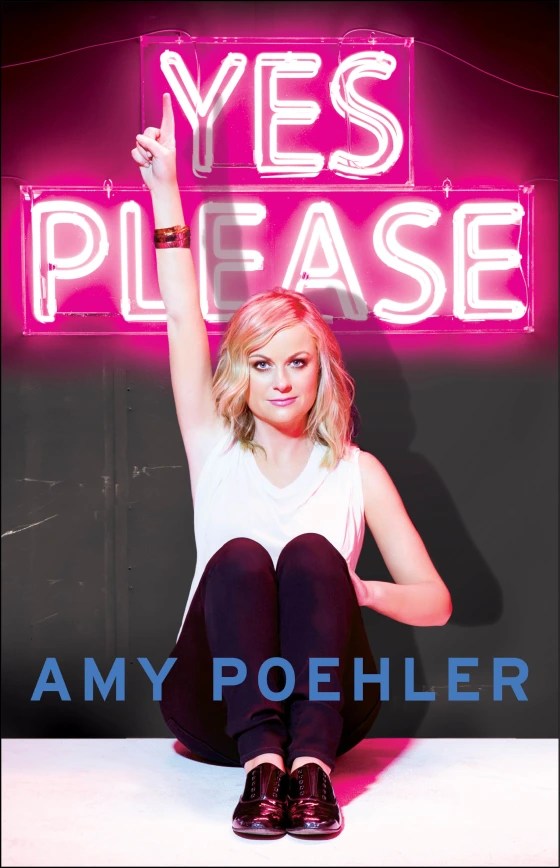
I feel like I should write a long and in-depth review of how and why Amy Poehler’s Yes Please. But, I don’t know that I know how to do that. I’ve seen mostly positive reviews of the book and I agree that its my second favorite autobiography by a comedian, coming in right behind Craig Ferguson’s American on Purpose. But I don’t know that I’m able to put my finger on why.
One of the detractions I’ve seen, and something that actually pleased me and prepared me for reading this book, is that it’s not a comedy book. It is an autobiographical book by a comedian. There is an enormous difference between the two, and I have a feeling that it’s why Tina Fey’s Bossypants didn’t really land for me, and this did. Fey was being funny instead of just talking to the reader sometimes.
This books greatest strength though, is that it’s also every conversation you wished you could have with Amy Poehler. I am a Poehler fan, but it took me years to get there. I was aware of UCB, but it wasn’t my thing when it was on Comedy Central in the late 90s. I remember Amy being on SNL, and I remember loving her on Weekend Update, but I didn’t watch SNL much in those years. I love Parks and Rec now, but I refused to watch it in the early years because I had The Office baggage, and then worked in a county parks department. It felt too close to home.
But then Smart Girls happened and I knew that I had a deep admiration for this woman who both knew we needed this in the world and had the ability and drive to get it there. The Amy who exists in latter seasons of Parks and Rec as Leslie, and who is the driving force behind Smart Girls is who you meet in Yes Please. And she’s a freakin’ delight. She reminds me of the people in my life who I love. She feels like the older sister I always wished I had. Her Hollywood stories are fun, but her life stories and insights are worth the price of admission.*
Read this book. You’ll laugh, you’ll think, and you’ll be glad the world has an Amy Poehler in it.
This book was read and reviewed as part of the charitable Cannonball Read.





